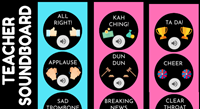Teacher Soundboard
Categories
- Academic Language
- Algebra
- announcement
- Assessment
- Brain-based-learning
- Calculus
- CCSSM
- Ed Tech
- Educational Research
- geometric patterns
- Geometry
- graphicacy
- icosahedron
- Leadership
- Learning
- mathematical reasoning
- Misc.
- Motivation
- PARCC
- Personal
- Platonic
- Problem Solving
- Reflection
- Remediation-and reducing it
- sequences
- statistical reasoning
- STEM
- Teaching
- technology
- testing
- Trigonometry
- Uncategorized
-
Recent Posts
Archives
- October 2023
- August 2023
- June 2021
- March 2021
- February 2021
- November 2020
- October 2020
- July 2020
- June 2020
- April 2020
- January 2020
- November 2019
- September 2019
- March 2019
- August 2018
- May 2018
- March 2018
- February 2018
- January 2018
- June 2017
- April 2017
- March 2017
- February 2017
- January 2017
- November 2016
- September 2016
- May 2016
- April 2016
- March 2016
- February 2016
- January 2016
- December 2015
- September 2015
- August 2015
- June 2015
- March 2015
- February 2015
Meta
Category Archives: mathematical reasoning
Graphicacy
Good summary of what graphicacy is, especially early graphicacy in children.  Click to access espresso_22_early_graphicacy.pdf This definition of graphicacy does not seem to be comprehensive enough to include spatial sense, but is an important subset, or component of, spatial … Continue reading
Posted in graphicacy, Learning, mathematical reasoning, statistical reasoning
Comments Off on Graphicacy
Make Your Daughter Practice Math. She’ll Thank You Later. (And by the way your son, too.)
Good opinion-editorial piece. I think it does deemphasize conceptual understanding problem-solving and may over-emphasize practice, but overall this is a good article. I like the analogy of doing math in playing a musical instrument. https://www.nytimes.com/2018/08/07/opinion/stem-girls-math-practice.html
Posted in Brain-based-learning, Educational Research, Learning, mathematical reasoning
Tagged girls
Comments Off on Make Your Daughter Practice Math. She’ll Thank You Later. (And by the way your son, too.)
Using Rich Problems for Differentiated Instruction
This is a good paper describing the use and characteristics of rich problems. http://math.sfsu.edu/hsu/papers/HsuKyshResek-RichProblems.pdf (The teaching method here is Teaching With Tasks.) Has 3 examples of rich problems First is rich and fairly basic and doable. Second is excellent. #differenceofsquares … Continue reading
Posted in Assessment, Educational Research, mathematical reasoning, Problem Solving, Teaching
Tagged differentiated instruction, teaching with tasks
Comments Off on Using Rich Problems for Differentiated Instruction
Check out openmiddle.com
I like https://t.co/CnV6LGaZgB Example: https://t.co/NISNnmCYgo #Math #ProblemSolving https://t.co/tncHYXv8ao — Jim Olsen (@DrOlsen314) April 27, 2016 It does appear to be somewhat CCSSM-based.
Posted in mathematical reasoning, Problem Solving, technology
Comments Off on Check out openmiddle.com
Quadrant D Learning
The Rigor/Relevance Framework. See the SlideShare at http://www.slideshare.net/NancyW1354/bump-it-up-to-quadrant-d-social-studies See also https://appyadventuresandteaching.wordpress.com/category/bill-daggett/ (Click graphic)
Posted in Assessment, Learning, mathematical reasoning, Teaching
Comments Off on Quadrant D Learning
I want math to be realistic and meaningful
realistic: I take this from Flickr from CU-Boulder and Freudenthal Institute US hosted the Fifth Realistic Mathematics Education conference, or RME5, in September of 2015. https://www.flickr.com/photos/downclimb/sets/72157656469778994/ Realistic: imaginable, realizable, not just “real-world” Meaningful: significant, relevant, important, consequential, telling, material, valid, … Continue reading
Posted in Brain-based-learning, Educational Research, Learning, mathematical reasoning, Motivation, Teaching
Tagged Freudenthal
Comments Off on I want math to be realistic and meaningful
Spotting Numbers and Visual Patterns
Here a two great websites that provide lots of great pattern problems. Spotting Numbers Visual Patterns These patterns can be used with elementary students (if you just ask number questions) through advanced algebra (if you include questions about functions). Mathematics … Continue reading
Posted in Algebra, geometric patterns, Geometry, mathematical reasoning, Problem Solving, sequences
Comments Off on Spotting Numbers and Visual Patterns

